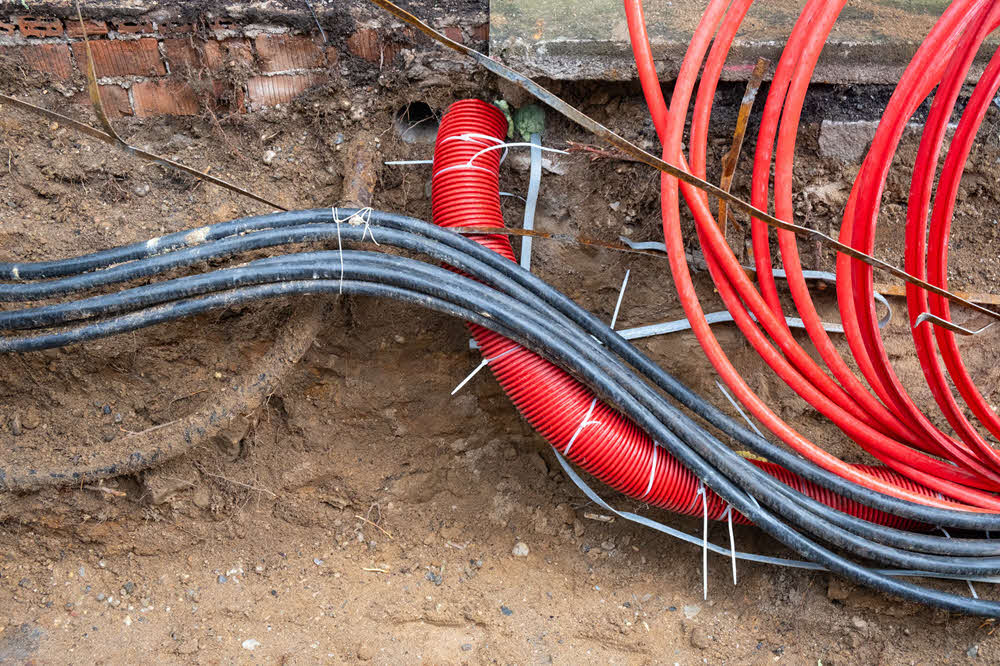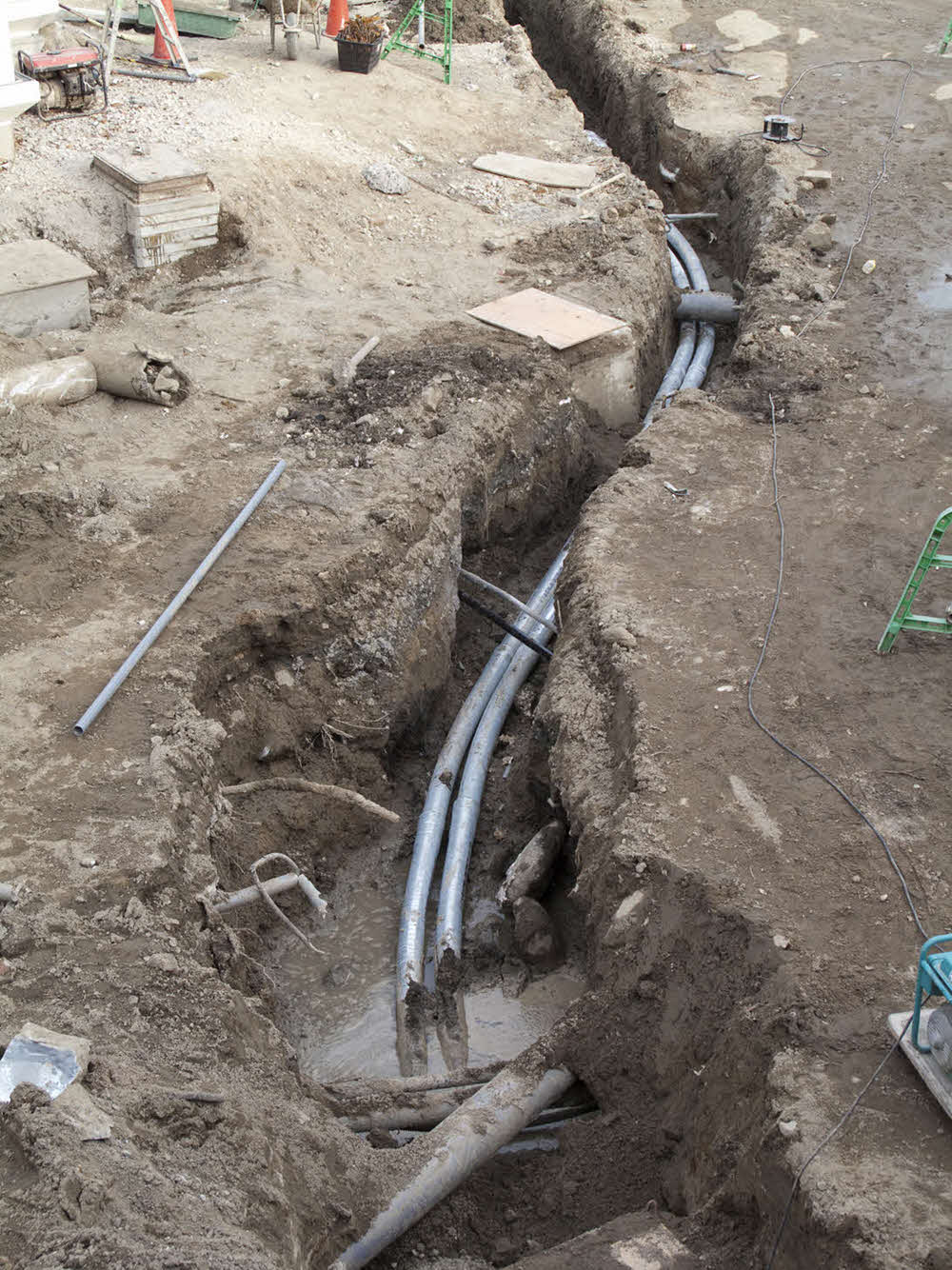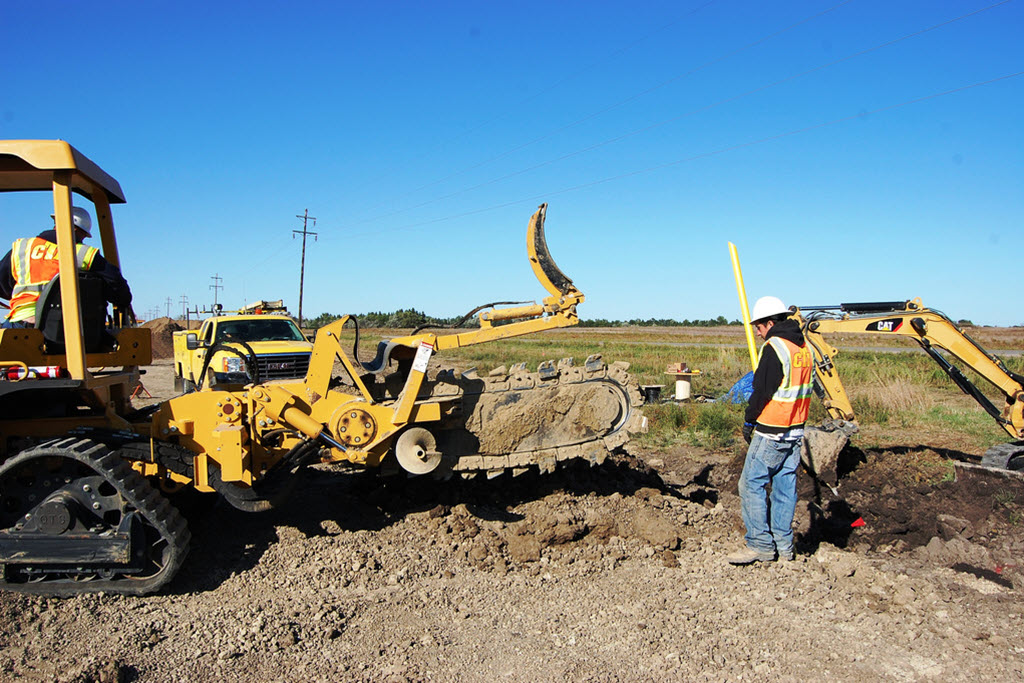Electrical Conduit Servicesin Washington MI
Expert Conduit Installation to Support Electrical and Data Systems
We Are Locally Owned & Operated For Over 37 Years
Contact Us Today!
We Serve Businesses In And Around The Following Cities:
About Electrical Conduit Services
Introduction
The landscape of Washington DC, with its heritage buildings, commercial properties, and continuous development projects, presents unique challenges for providing safe and efficient electrical services. One crucial component in this landscape is the use of a Conduit For Electrical Underground to facilitate electrical wiring in commercial properties. This detailed guide aims to present a comprehensive understanding of this important process, the benefits associated with its use, and practical applications within real-world scenarios.
Understanding Conduit For Electrical Underground
Essentially, a conduit for electrical underground is a tube or pipe system designed to protect and route electrical wiring in a structure. It provides a clear path for electrical wiring while protecting it from damage, corrosion, or influence from other utilities. The most commonly used conduit type for underground wiring in Washington is PVC conduit, known for its durability, ease of use, and cost-effectiveness.
Installing PVC conduit underground is a specific process that entails careful planning, trenching for electrical conduit, assembling the conduit sections, and laying them in the trench, often with the assistance of professional services like D&J Contracting. Navigating through varied terrains and around gas lines, it’s important to accurately estimate the depth of the trench, the type and size of the conduit to be used, and the number of bends or junctions needed.
The Process of Installation
Running an underground electric line is a multi-step ordeal that requires precise execution. To start, a trench is excavated to a depth that adheres to local regulations. The trenching for electrical conduit must ensure that the conduit is protected and doesn’t interfere with other utilities.
The conduit, usually made of PVC for underground wiring, is then assembled on the surface. Bends are created using special fittings to match the topography of the plot. An electrical wire pull rope is usually placed inside the conduit for future wire pulling. The assembled conduit goes into the trench after inspections, and the trench is backfilled.
Benefits of Conduit For Electrical Underground
Installing a conduit underground for electrical work holds several significant benefits. First and foremost, it provides superior protection to electrical wires from physical damages and harsh weather elements. Services such as those provided by D&J Contracting ensure the lines are safe and free from erosion, rodent attacks, or accidental cuts.
A conduit underground electrical also supports the potential expansion of electrical systems. New wires can be easily pulled in or old ones removed through the conduit, preventing repetitive excavation. Taking a real-world illustration, consider a commercial building undergoing expansion. With the existence of underground conduits, additional electrical load capacity can be accommodated without significant disruptions or trenching anew.
Washington and Conduit For Electrical Underground
The city’s complex terrain coupled with increasingly stringent construction codes makes running underground electrical services a necessity. For instance, in older commercial districts like Georgetown or Dupont Circle, the use of underground conduits frees up facades, preserves structural integrity and maintains a clutter-free aesthetic. Notably, D&J Contracting has become synonymous with comprehensive underground wiring services in Washington, drawing from long-term experience and localized insights.
When dealing with the enhanced safety regulations near federal properties or the careful precision required in running electrical wire near gas lines, professional services help mitigate risks. They execute works according to code, ensuring that safety standards are upheld.
Final Reflections – The Way Forward
As commercial properties in Washington continue to develop and evolve, the importance of conduit for electrical underground cannot be overstated. It is clear that this process, designed to ensure safety, enable future expansion and maintain aesthetic integrity, has made the Conduit for Electrical Underground a necessary pathway for electricity in both present and future structures.
With businesses like D&J Contracting offering dedicated services, the maze of Washington’s underground electric line system can be navigated efficiently, skillfully and safely. As we move forward, the presence and significance of conduit for electrical underground will only become more apparent, making it a field worth understanding and investing in.
Electrical Conduit Services Gallery


Call Us Today to receive your Free Quote for
Conduit For Electrical Underground in Washington
Serving: Washington, Michigan

About Washington, Michigan
Washington Township was organized in 1827. It is home to the historic Octagon House, built by Loren Andrus from 1858 to 1860.
Westview Orchards was founded in what is now Washington Township in 1813. The Mount Vernon Cemetery, located at the southeast corner of Mt. Vernon Road and 28 Mile Road, is evidence of a former settlement, named for George Washington’s estate. The village of Mount Vernon once had a post office with William Austin Burt as its first postmaster in 1832.
Washington Township is in northwestern Macomb County and is bordered to the west by Oakland County. The village of Romeo is partially in the northeast part of the township. Ray Township is to the east, Shelby Township is to the south, and Bruce Township is to the north. Washington Township is 28 to 34 miles (45 to 55 km) north of downtown Detroit.
According to the United States Census Bureau, the township has a total area of 36.9 square miles (96 km), of which 35.6 square miles (92 km) are land and 1.3 square miles (3.4 km), or 3.46%, are water.
- Clifton Mills is an unincorporated community near the intersection of 31 Mile Rd. and Mt. Vernon Rd. (42°47′06″N 83°05′10″W / 42.78500°N 83.08611°W ;Elevation: 853 ft./260 m.).
- Mount Vernon is an unincorporated community in the southwest portion of the township at Mt. Vernon and 28 Mile Roads (42°44′31″N 83°05′13″W / 42.74194°N 83.08694°W ;Elevation: 830 ft./253 m.).
- Romeo is a village in the northeast corner of the township. Most of the village is in adjacent Bruce Township.
- Washington is an unincorporated community in the south central portion of the township just west of M-53 at 42°43′28″N 83°02′10″W / 42.72444°N 83.03611°W. Located at the intersection of North 26 Mile Rd. and VanDyke Ave.
As of the census of 2010, there were 25,139 people (up from 19,080 in 2000), 9,258 households, and 7,160 families residing in the township. The population density was 699.2 inhabitants per square mile (270.0/km). There were 9,258 occupied housing units and 612 vacant units. The racial makeup of the township was 94.8% White, 1.6% African American, 0.2% Native American, 1.0% Asian, 0.04% Pacific Islander, 1.0% from other races, and 1.3% from two or more races. Hispanic or Latino people of any race were 3.9% of the population.
There were 9,258 households, out of which 32.9% had children under the age of 18 living with them, 64.9% were married couples living together, 8.9% had a female householder with no husband present, and 22.7% were non-families. 19.2% of all households were made up of individuals, and 7.6% had someone living alone who was 65 years of age or older. The average household size was 2.70 and the average family size was 3.11.
In the township the population was spread out, with 25.0% under the age of 18, 7.3% from 18 to 24, 23.3% from 25 to 44, 30.3% from 45 to 64, and 14.1% who were 65 years of age or older. The median age was 41 years. For every 100 females, there were 97.8 males. For every 100 females age 18 and over, there were 94.7 males.
The median income for a household in the township was $68,841 in 2000 and $83,348 in 2016; the median income for a family was $78,988 in 2000 and $94,057 in 2016. In 2000, males had a median income of $60,721 versus $31,213 for females. The per capita income for the township was $38,657. About 5.7% of families and 7.1% of the population were below the poverty line (up from 2.8% of families and 3.7% of all individuals in 2000), including 9.6% of those under age 18 (up from 5.0% in 2000) and 5.9% of those age 65 or over (up from 2.7% in 2000).
The township has a supervisor-board style government with an elected supervisor, clerk, treasurer and four trustees.
The school districts serving the township residents are Romeo Community Schools, Utica Community Schools, and Rochester Schools from Oakland County.
Call Us Today to receive your Free Quote for
Conduit For Electrical Underground in Washington
Related Services in Washington, Michigan
We Serve Businesses In The Following Zip Codes:
48007, 48015, 48021, 48026, 48035, 48036, 48038, 48042, 48043, 48044, 48045, 48046, 48047, 48048, 48050, 48051, 48066, 48071, 48080, 48081, 48082, 48083, 48084, 48085, 48088, 48089, 48090, 48091, 48092, 48093, 48098, 48099, 48225, 48230, 48236, 48310, 48311, 48312, 48313, 48314, 48315, 48316, 48317, 48318, 48397